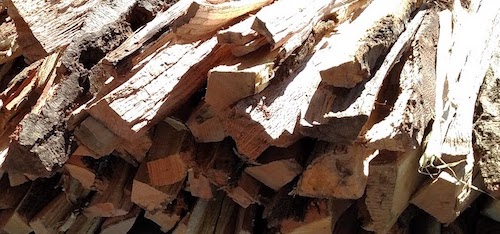Fires
Fires provide heat and light. There are superior sources of these things, so use fires only if you have no choice. Portable stoves are smaller, faster, cleaner, safer, and more efficient than a fire.
Creating fires
Use fires only in designated areas. There should be nothing flammable near this area. Make sure you have the materials necessary to put the fire out if necessary. If there is no designated area, start to question whether fires are allowed.
Materials
To start a fire, fuel, heat, and oxygen are needed.
Fuel
Tinder is highly flammable material that is used to start a fire. They are usually small, dry things like dead grass, dry pine needles, shredded bark, and the fluff from seedpods. These things catch fire easily but go out fast, so other materials are needed to keep a fire going.
Kindling is like tinder but lasting longer. Small sticks around the size of a pencil can serve as kindling. Kindling should be able to transfer fire to fuel wood.
Fuel wood is the main source of fuel for a fire. They are hard to get flaming but will last for a long time. These are usually large blocks of wood.



Heat
A source of heat is necessary to start a fire. An ordinary match or flint and steel will work. If you're crazy enough, magnesium and white phosphor also work.
Structure
Once fuel is collected, it must be arranged so that the initial source of heat can get the wood on fire. This structure should allow the fire to move to the fuel wood which allows it to last longer.
One method is to place two pieces of wood parallel to each other with some space in between. Two pieces of kindling should be placed perpendicular in the middle. Place a pile of kindling beneath the kindling. Repeat this, rotating 90 degrees every time.
Another way is to place tinder in the middle of the fire site. Place kindling over the tinder and then arrange fuel wood in a teepee arond the kindling.
If there is wind, you can use fuel wood as a wall. Lean kindling against the wall so that it no wind reaches it. Place tinder under the kindling.
Starting the fire
Start a small fire using a match or lighter or something. Protect this small fire from the wind. Light the tinder with this fire, making sure the small fire has enough oxygen to start the big fire.
Putting out fires
- Pour water on the fire
- Pour water on the embers
- Move ashes around, exposing remaining embers
- Pour water on embers
- Repeat so that when you place your hand just above ashes there is no heat
Impact of fire
One of the reasons fires shouldn't be used if possible is their environmental impact.
- Fires can sterilize soil. Vegetation will have a hard time growing where a fire has been
- Fires consume wood that could have been used as shelter and food
- Fire sites char the ground and ruin the land
- Campfires can easily spread and create unwanted fires
Views: 357
Replies coming soon